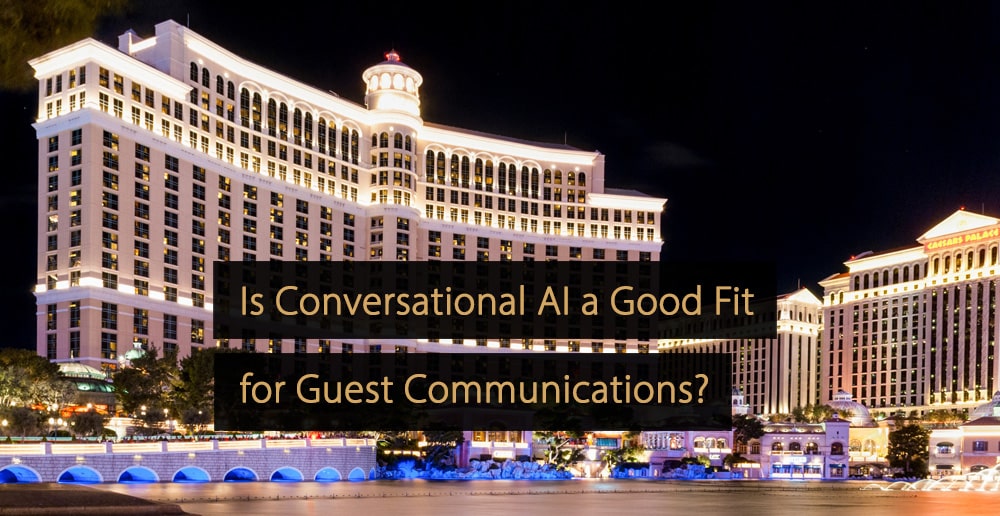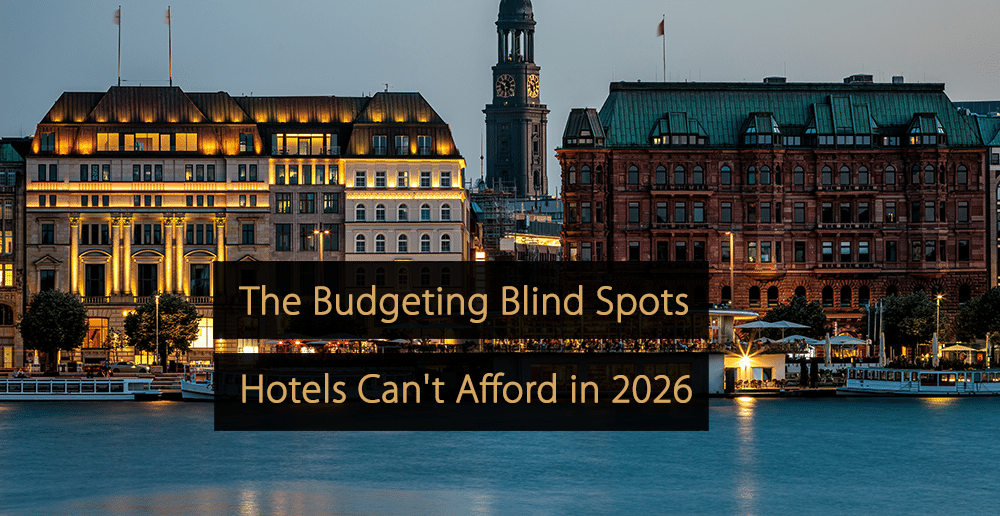The power of Artificial Intelligence (AI) has been making waves in the hospitality industry. Considering rapid developments in AI-based hotel tech solutions, rising expectations of tech-savvy travelers, and challenges the industry faces, let’s explore the fit of conversational AI in guest communications, as well as its role and benefits.
Beyond the Hype: Sophistication of Conversational AI
Before exploring the answer to the titular question from guests’ and hotels’ perspectives, let’s take a closer look at the technology itself. In recent years, hotel tech solutions powered by Artificial Intelligence have become increasingly more advanced thanks to dynamic development in the field. In parallel, guests’ expectations of the customer-facing technology increased as well.
Innovative solutions like rule-based chatbots for hotels (i.e., “yes”/”no” answer structure to determine offers presented) are not nearly as efficient as those powered by conversational AI. Let’s explore what gives them a competitive edge.
What Is an AI-Based Chatbot or Conversational AI Chatbot for Hotels?
In summary, these types of solutions can read communication, analyze it, and identify the most relevant answers. However, there are different levels of advancement and sophistication in which they perform this task. The conversational AI solutions can be enhanced with the latest developments in the field, and in the last couple of years, we have observed an emergence of powerful capabilities.
When choosing a conversational AI solution for your business, you may want to ask about some specific advanced capabilities:
- Self-learning: acquiring knowledge about new topics, terms, and expressions to increase the accuracy of answers.
- Voice assistance: interpreting natural human speech (using Natural Language Processing) and answering with an AI-generated voice.
- Sentiment analysis: interpreting the text to understand its sentiment (positive, neutral, or negative), which can be useful in prioritizing queries.
- Generative AI: providing tailored, specific answers to questions based on understanding and interpreting data in the knowledge base.
Significant developments in the area happen frequently, so make sure to choose an AI-powered solution provider committed to innovation and continuously incorporates AI’s new capabilities into its solutions’ features.
Are Hotel Guests Ready to Embrace Conversational AI?
To jump straight to the answer – they already have. A study by Oracle from 2022 showed that guests don’t only have a positive attitude towards smart technology; in fact, they prefer it. As many as 67% of travelers expressed interest in staying at hotels that use AI to provide personalized services. In the same research, 36% of respondents stated they would choose a fully contactless digital service with hotel staff available only on request.
With so many smart technologies, apps, and digital devices in everyday life, many travelers are quite tech-savvy. They may expect the hospitality industry to provide a certain standard of convenience, personalization, and responsiveness they are accustomed to. While implementing AI-based solutions is still about getting a competitive edge and being at the forefront of innovation, it’s just as much about keeping up with what’s becoming a new standard in guest communications.
Can Conversational AI Resolve Guest Queries as Effectively as Hotel Staff?
In most cases, yes – the caveat being its degree of specialization in hospitality and how advanced the technology is. Case studies of hotels that implemented conversational AI solutions from HiJiffy across the entire guest journey show that, on average, around 85% of guest queries were resolved automatically without human interaction. They also report a Customer Satisfaction (CSAT) score usually exceeding 80%, meaning that questions are answered well enough.
On top of that, other factors may contribute to guests’ positive assessment of interacting with conversational AI: immediate response time 24/7, automatic translation to other languages, and the overall convenience that comes with it.
Does the Hospitality Industry Actually Need Conversational AI?
There are several factors for consideration while debating whether the hospitality industry needs to embrace various AI developments.
Let’s start with the most pragmatic factor. In the European Union alone, there was an estimated 1.2 million staff shortage within the tourism industry, as reported in 2022 by the World Travel and Tourism Council (WTTC). It directly affects the guest experience – in many properties, it generates longer response times to incoming queries, longer queues at the reception, and constrains the possibilities of personalized service. If pushed to the limit, many hoteliers focus on ensuring operational efficiency while sacrificing the level of service that can be provided.
In the joint 2022 report made with WTTC, the European Travel Commission proposed a list of key recommendations for the sector, including “adopting innovative technological and digital solutions to improve daily operations” to address staff shortages. We could observe the perception of such solutions within the industry shifted from a curious “nice-to-have” to an essential support tool for hotel teams.
With a wide range of hotel tech solutions available on the market, there is a growing number of those harnessing the power and the potential of AI to address all kinds of pain points and needs in hospitality – from streamlining operations to boosting revenue to automating guest communications. The most developed solutions combine several benefits and seamlessly integrate with other hotel technologies, such as booking engines, property management systems, and more.
The area of guest communications is the most obvious choice for conversational AI applications across the entire guest journey, from step-by-step guidance through the online booking process to automated and personalized campaigns (be it pre-arrival online check-in, cross-selling during in-stay or feedback requests at departure, to name a few). But most of all, it answers a constant stream of questions from travelers and guests across all communication channels.
A recent first-party data report (available below) from a provider of a specialized hotel guest communications solution analyzed over 1.7 million queries their conversational AI handled throughout the summer of 2023. The most common questions are repetitive inquiries where an interaction with a staff member was not only unnecessary but also would bring little, if any, value compared to when AI resolved it.
Thanks to automating this type of request, you can save time and work for your teams (which can also translate into a higher staff retention rate) to be available for areas of work where they bring unparalleled value to the guest experience. At the same time, you provide quick, responsive, and personalized customer service to your (prospective) guests.
The hospitality industry is readily moving towards an AI-powered future. As guest preferences evolve and the industry faces ongoing challenges, embracing conversational AI in guest communications is not just about innovation but also about meeting new standards and continuing to deliver elevated guest experiences.
More Tips to Grow Your Business
Revfine.com is the leading knowledge platform for the hospitality and travel industry. Professionals use our insights, strategies, and actionable tips to get inspired, optimize revenue, innovate processes, and improve customer experience.Explore expert advice on management, marketing, revenue management, operations, software, and technology in our dedicated Hotel, Hospitality, and Travel & Tourism categories.








Leave A Comment